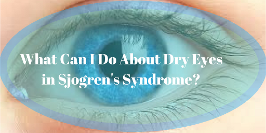What Can I Do About Dry Eyes?
- Artificial tears.
Available by prescription or over the counter under many brand names, these products keep eyes moist by replacing natural tears. Artificial tears come in different thicknesses, so you may have to experiment to find the right one. Some drops contain preservatives that might irritate your eyes. Drops without preservatives usually don’t bother the eyes. These drops typically come in single-dose packages to prevent contamination with bacteria.
- Ointments.
Ointments are thicker than artificial tears. Because they moisturize and protect the eye for several hours, and may blur your vision, they are most effective during sleep.
- Hydroxypropyl methylcellulose.
This is a chemical that lubricates the surface of the eye and slows the evaporation of natural tears. It comes in a small pellet that you put in your lower eyelid. When you add artificial tears, the pellet dissolves and forms a film over your own tears that traps the moisture.
- Topical anti-inflammatory agents.
Topical steroids and cylcosporin A are used if the surface of the eye is inflamed. Topical steroids can increase the pressure in the eye, so your eye pressure must be monitored regularly.
- Punctal occlusion.
A surgical procedure used to close the tear ducts that drain tears from the eye, helping to keep more natural tears on the eye’s surface. For a temporary closure, the doctor inserts collagen or silicone plugs into the ducts. Collagen plugs eventually dissolve, and silicone plugs are “permanent” until they are removed or fall out. For a longer lasting effect, the doctor can use a laser or a heating device called a cautery to seal the ducts.
General Tips for Eye Care
- Don’t use artificial tears that irritate your eyes. If one brand or prescription bothers you, try another. Eye drops that do not contain preservatives are usually essential for long-term use'
- Practice blinking: You tend to blink less when reading or using the computer. Remember to blink 5 to 6 times a minute.
- Protect your eyes from drafts, breezes, and wind.
- Put humidifiers in the rooms where you spend the most time, including the bedroom, or install a humidifier in your heating and air conditioning unit.
- Don’t smoke, and stay out of smoky rooms.
- Apply mascara only to the tips of your lashes so it doesn’t get in your eyes. If you use eyeliner or eye shadow, put it only on the skin above your lashes, not on the sensitive skin under your lashes, close to your eyes. Avoid facial creams on the lower lid skin at bedtime if you are awakening with eye irritation.
- Ask your doctor whether any medications that you are taking contribute to dryness. If they do, ask how the dryness can be reduced.
This information is from the National Institute of Arthritis and Musculoskeletal and Skin Diseases (NIAMS)
Information Clearinghouse National Institutes of Health
Applying warm compresses to the eyes and then gently washing the eyelids using baby shampoo can help release the oil in the tear glands. This improves the quality of tears.
In cold weather, using a bedside humidifier at night and adding a humidifier to a furnace can help to introduce some moisture back into the dry air.
Fans, wind, and hair dryers can make eyes dry. People with dry eye should avoid too much air movement from these devices. Sunglasses may help protect the eyes from wind when outside.
Platelet-Rich Plasma Injection in the Management of Severe Dry Eye. The British Journal of Ophthalmology.
CONCLUSION
PRP injection is safe and effective in improving tear parameters as well as subjective parameters, and was found to be superior to hyaluronic acid alone in the management of patients with severe dry eye. This represent a novel alternative treatment for severe dry eye.

Find out about:
What Can I Do About Dry Mouth? discusses the following in detail:
-
Chewing gum and hard candy
-
Water
-
Lip balm
-
Saliva substitutes
-
Prescription medications
-
Candida
-
The Importance of Oral Hygiene